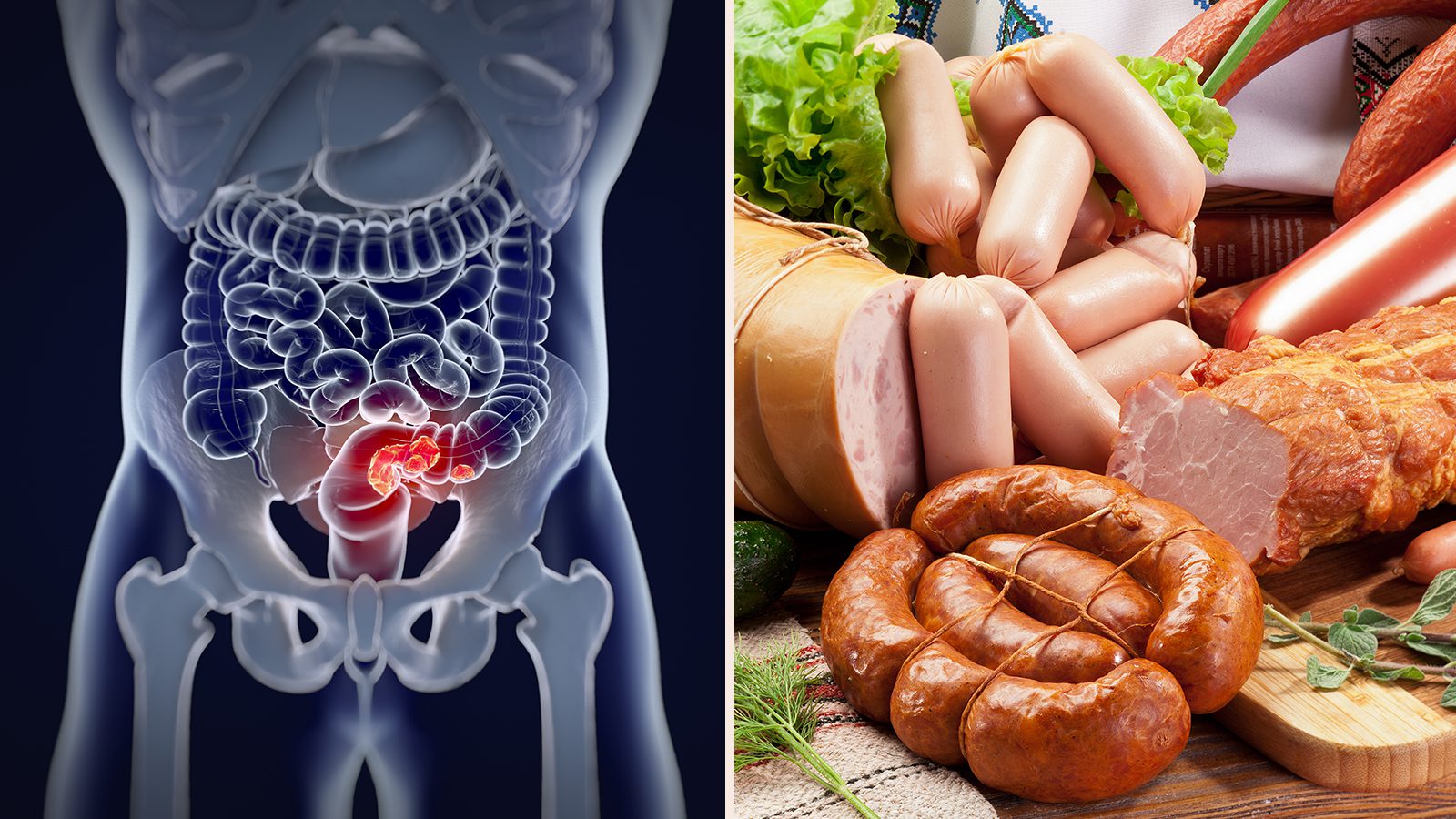Ultra-processed food can cause many diseases in the mind and body, including colorectal cancer. Unfortunately, many Americans consume these foods daily since they’re convenient and don’t require preparation. However, they end up paying the ultimate price regarding their health.
The prevalence of prepackaged and instant meals makes it difficult to adhere to healthy eating habits. But researchers from Tufts University and Harvard University hope their findings will encourage Americans to eat more nutritious foods. Their study discovered a strong association between a high intake of ultra-processed foods and heightened colorectal cancer risk.
The research team found that men who frequently consumed heavily processed foods had a 29% higher risk of developing colorectal cancer. However, they didn’t make the same discovery in women. Colorectal cancer is the third most diagnosed cancer in the U.S., partially due to the abundance of processed foods. The findings appeared on August 31, 2022, in the BMJ.
“We started out thinking that colorectal cancer could be the cancer most impacted by diet compared to other cancer types,” said Lu Wang, the study’s lead author and a postdoctoral fellow at the Friedman School of Nutrition Science and Policy at Tufts. “Processed meats, most of which fall into the category of ultra-processed foods, are a strong risk factor for colorectal cancer. Ultra-processed foods are also high in added sugars and low in fiber, which contribute to weight gain and obesity, and obesity is an established risk factor for colorectal cancer.”
The team evaluated responses from over 200,000 participants — 159,907 women and 46,341 men. Data spanned three extensive studies performed over 25 years that analyzed volunteers’ dietary intake. Each participant received a food frequency questionnaire every four years asking how often they consumed nearly 130 foods.
Next, researchers categorized participants’ consumption of ultra-processed foods by lowest to highest intake. Those in the highest quintile had the most significant risk of developing colorectal cancer, especially in the distal colon of men. However, the study did not discover an increased risk of colorectal cancer in women who ate large amounts of processed foods.
How Ultra-processed Food Can Leads to Colorectal Cancer
The analyses discovered that men and women consume ultra-processed food differently, resulting in variations in potential cancer risk. Among the 206,000 volunteers followed for over 25 years, the team recorded 1,294 colorectal cancer cases among men and 1,922 cases in women.
The team discovered the strongest association between colorectal cancer and ultra-processed foods in men came from prepared meat, poultry, and fish.
“These products include some processed meats like sausages, bacon, ham, and fish cakes. This is consistent with our hypothesis,” Wang said.
They also found that a higher intake of sugar, such as from soda, fruity drinks, and milk-based beverages, led to increased colorectal cancer risk in men. However, they determined that some ultra-processed foods aren’t as harmful to health as others.
“We fouud an inverse association between ultra-processed dairy foods like yogurt and colorectal cancer risk among women,” said co-senior author Fang Fang Zhang, a cancer epidemiologist and interim chair of the Division of Nutrition Epidemiology and Data Science at the Friedman School.
The team concluded that ultra-processed foods didn’t impact colorectal cancer risk in women. They believe that the differences in processed food consumption in men and women might explain these results.
“Foods like yogurt can potentially counteract the harmful impacts of other types of ultra-processed foods in women,” Zhang said.
Mingyang Song, the co-senior author of the study and assistant professor of clinical epidemiology and nutrition at the Harvard T.H. Chan School of Public Health, added that “Further research will need to determine whether there is a true sex difference in the associations, or if null findings in women in this study were merely due to chance or some other uncontrolled confounding factors in women that mitigated the association.”
While ultra-processed foods usually point to a poor-quality diet, other factors associated with prepackaged foods may increase cancer risk. For instance, food additives can adversely affect the gut microbiome, leading to chronic inflammation. Also, byproducts from food processing can trigger cancer growth, according to Zhang.
What the Data Revealed About Our Food
Each of the three studies had over a 90% follow-up rate, giving the research team plenty of data to analyze.
“Cancer takes years or even decades to develop, and from our epidemiological studies, we have shown the potential latency effect — it takes years to see an effect for certain exposure on cancer risk,” said Song. “Because of this lengthy process, it’s important to have long-term exposure to data to better evaluate cancer risk.”
The studies included:
- The Nurses’ Health Study (1986-2014): 121,700 registered female nurses between ages 30 and 55.
- The Nurses’ Health Study II (1991-2015): 116,429 female nurses between ages 25 and 42.
- The Health Professional Follow-up Study (1986-2014): 51,529 male health professionals between ages 40 and 75.
After excluding previous colorectal cancer diagnoses or incomplete surveys, the researchers had data from 159,907 women from both NHS studies and 46,341 men. The team accounted for variables such as race, family history of cancer, history of endoscopy, and lifestyle factors. These included smoking status, alcohol consumption, daily calorie intake, frequent aspirin use, and menopausal status.
Zhang added that since these participants worked in healthcare, the findings for this group may differ from the general population. For example, healthcare workers may avoid ultra-processed foods since they witness their effects firsthand.
“But we are comparing within that population those who consume higher amounts versus lower amounts,” Zhang reassured. “So those comparisons are valid.”
Study Reveals the Importance of Healthier Eating Habits
It’s no secret that Americans generally eat suboptimal foods, which leads to poorer health. Wang and Zhang published a prior study that revealed an increasing consumption of ultra-processed foods in U.S. children and teenagers. Both studies highlight the reality many people find themselves in today: a reliance on processed foods for convenience or affordability.
“Much of the dependence on these foods can come down to factors like food access and convenience,” said Zhang, a member of the Tufts Institute for Global Obesity Research. “Chemically processing foods can aid in extending shelf life, but many processed foods are less healthy than unprocessed alternatives. We need to make consumers aware of the risks associated with consuming unhealthy foods in quantity and make the healthier options easier to choose instead.”
Wang realizes the challenges of changing dietary habits, especially for those who lack access to nutritious foods. However, he hopes this study will lead to large-scale changes in nutritional guidelines and eating patterns.
“Long-term change will require a multi-step approach,” Wang added. “Researchers continue to examine how nutrition-related policies, dietary recommendations, and recipe and formula changes, coupled with other healthy lifestyle habits, can improve overall health and reduce cancer burden. It will be important for us to continue to study the link between cancer and diet, as well as the potential interventions to improve outcomes.”
Final Thoughts on Study Linking Ultra-processed Food to Colorectal Cancer
A new study by Tufts University and Harvard University researchers found a strong link between ultra-processed foods and colorectal cancer. That doesn’t come as a surprise since processing changes the chemical structure of the foods, leading to adverse health effects. The team noted that men are more likely to develop colorectal cancer due to processed food consumption. They hope the study will encourage people to eat healthier foods and avoid prepackaged options.

















 Community
Community

